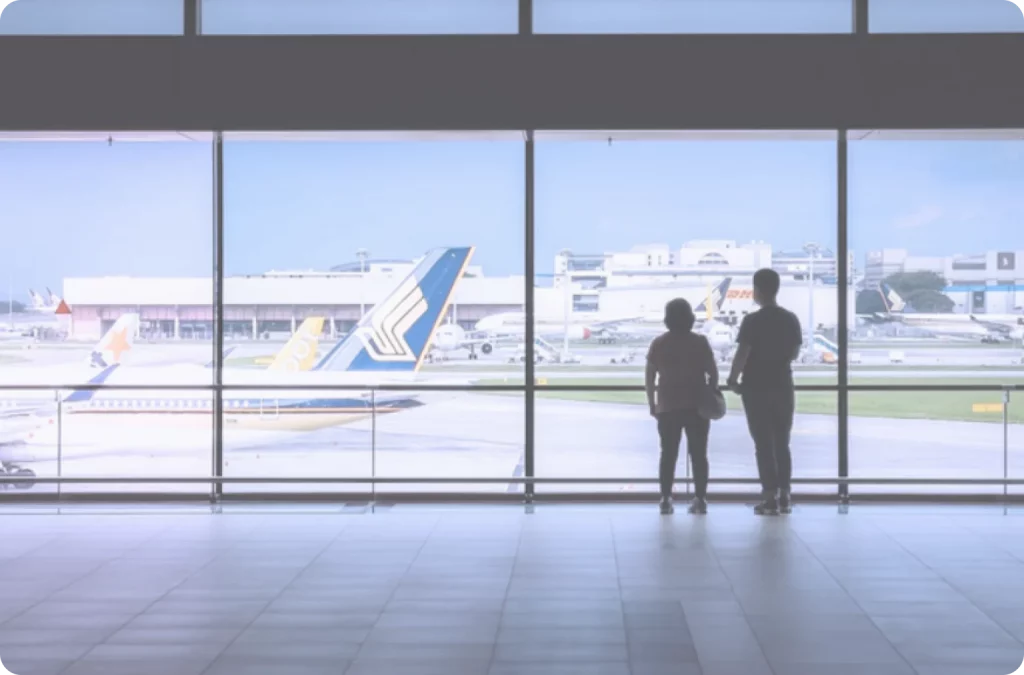” As Chief Commercial Officer or Head of Revenue Management, you know there is untapped revenue potential in no-shows. Every day, sold out flights leave with empty seats, causing airlines to lose out on potential revenue. The legacy solution to addressing it is overbooking. However, is overbooking really the optimal solution? “
Exploring the downsides of overbooking
Firstly, let’s address the elephant in the room – denied boardings. When airlines overbook, they sell more tickets than the actual number of seats available on the flight, with the expectation that not all passengers will show up. However, this also means that if every passenger does show up, some passengers will be denied boarding. This creates a disastrous experience for the passenger, which often leads to dissatisfaction, anger, and bad publicity for the airline. In today’s world, where everybody has a camera on their phone and social media is omnipresent, one bad experience can quickly spiral out of control and damage the reputation of the airline.
Tensions with the operations’ teams
But overbooking also creates tension between the revenue management teams, and airline operations. The RM team is focused on maximizing revenue by selling more tickets than there are seats, while the operations team must ensure seamless aircraft turnarounds and an equally seamless customer experience. When a flight is overbooked, the operations team is left to deal with the fallout of denied boardings, unhappy customers, and negative publicity.
Social media drama
Overbooking also creates a risk for airlines in terms of losing customers. One denied boarding passenger can ruin the whole flight experience, creating drama and bad social media exposure. The passenger will tell their friends, word of mouth is likely to spread out, and future potential customers will avoid the airline and turn to competition. There are countless videos online of dramas with passengers being denied boarding, which only serves to reinforce this negative perception.
In fact, overbooking’s associated risks prevent airlines from fully optimizing their flights. A riskless alternative now exists.
Why Fairlyne makes things better for your airline.
Fairlyne offers a better solution both from a revenue optimization standpoint and a customer satisfaction standpoint. With Fairlyne, airlines give passengers the option to request a partial refund of their ticket if they plan on being a no-show for whatever reason. Subsequently, if the airline manages to resell the passenger’s ticket, they then provide the customer with a partial refund, either in cash, credit, or even special loyalty points.
The airline can choose to resell the ticket(s) once they have sold all their remaining inventory or can opt to resell the ticket immediately if they see that they are well ahead of their planned booking curve and can get a fare premium.
Fairlyne’s is not only a more customer-centric approach, but it is also the only way to be sure that the incremental sold ticket will not force a denied boarding.
One might argue that if you overbook a flight, you don’t need to give any compensation to passengers. However, the issue with overbooking is that you imply don’t know how many passengers will no-show. As a result, revenue managers usually limit their overbooking levels despite the algorithm recommendations, thus compromising on the revenue upside.
With Fairlyne, win both in the short and long term
Finally, Fairlyne is a better solution for the long-term. While overbooking may help airlines in the short term, long term it is eroding airlines’ brand and future profitability. Fairlyne, on the other hand, offers a more sustainable approach to dealing with no-shows. By reselling no-shows, airlines can generate incremental revenue while creating a positive experience for their customers.





